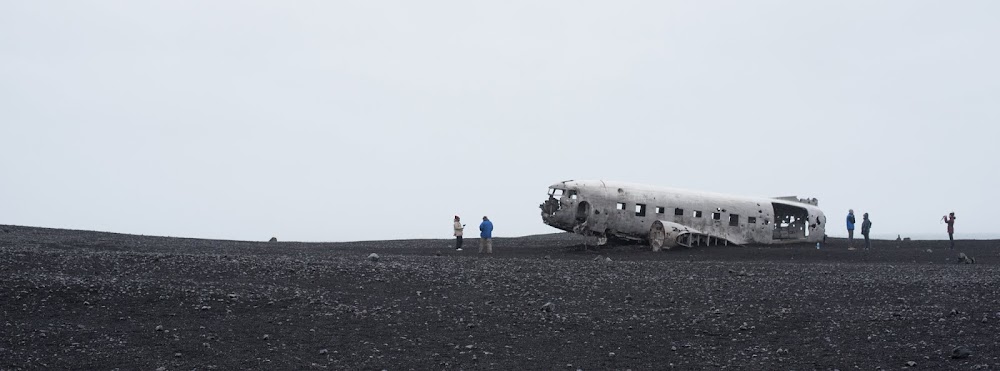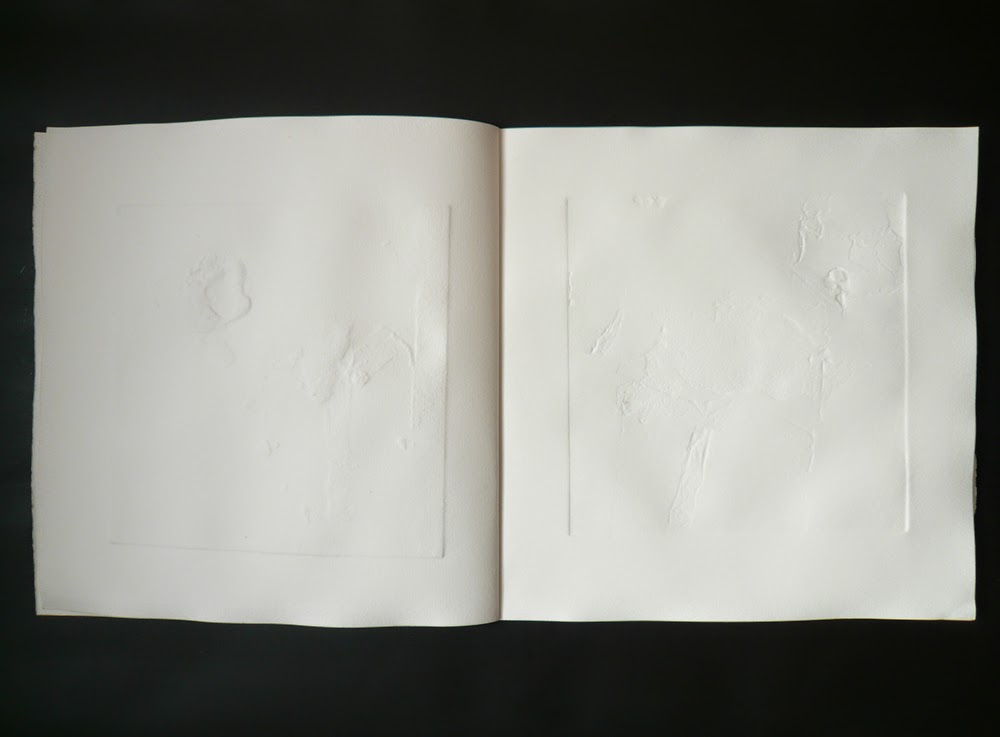鄒永珊,來自台灣。她是一位藝術家,創作的呈現方式主要是Künstlerbuch (尚無中文譯名,簡單來說就是:將藝術創作以書的形式來呈現),同時也是一位小說家,她的第一本文學小說《等候室》於2013年在台灣出版,第二本書《鐵道共乘旅遊手冊》預計在今年秋天會上市。
Yungshan comes from Taiwan. She is an artist and novelist. Her artworks are presented in the form of artist's books. The Waiting Room is her first publication in Taiwan. The second novel will be issued in this autumn.
為什麼在柏林?
Why did you move to Berlin?
因為唸書的關係,所以我來到了柏林,從那個時候到現在已經13年了。
I came to Berlin to study. I’ve been here for 13 years since then.
喜歡柏林嗎?
Do you like Berlin?
一言難盡。當你在一個地方生活久了以後,這個答案就會越來越複雜。不過我現在算是有找到在生活或是步調上的一種平衡,滿融入在這個城市的。
It’s hard to explain in a few words. As the time goes by, the answer is getting more complicated. But now I’ve found the balance of life and the path of work, I fit in the city well.
有什麼覺得在柏林應該要去做的事或是去的地方嗎?
Do you have any tips for people who visit Berlin?
花足夠多的時間什麼都不做。
Spend enough time doing nothing.
旅居在德國13年,不算短的一段時間,你覺得柏林對你有什麼樣子的影響?
Since you have been here for 13 years, it’s not a short time, how did Berlin change you ?
雖然現在柏林的生活步調逐漸的在變快,但是相較於台灣還是比較慢一點。在這裡的生活讓我有時間沈澱自己,好好的思考跟自己的關係,那個關係是真實的。速度放得慢了,也就更可以專注地跟自己對話。這樣的對話會不斷深入。其實那並不是一個很舒服的感覺,會有很多的衝突,發現自己內在的短少。而這種跟自己的對話,自我的認識,對於藝術家是很重要的。
Though the tempo of life in Berlin is getting faster now, it is still slower than in Taiwan. I have more time to get myself together, to think about the relationship with myself. The relationship is real. Slowing down enables me to concentrate more on having a dialogue with myself. And the conversation gets deeper and deeper. To be honest, it is an uncomfortable experience. There will be lots of conflicts in the meanwhile, and you’ll find what you lack of inside. To talk to and to know more about oneself is important to an artist.
開始寫小說的起緣?
What makes you start writing novels?
其實一直都有在寫,長的或短的,但是真正開始有意識的把文字記錄下來是在1997年,都是上個世紀的事情了呀(笑)。2003到2005年間我開始大量的產出文字,因為在那個時候在內心裡有很多需要抒發的事情。藝術創作往往是孤獨的,但寫作更是孤獨。在寫作的過程中,情緒也會有很大的波動與許多的不平衡,而這樣的不平衡往往又必須透過藝術創作來抒發,算是互相影響吧。情緒是膚淺而短暫的,往往我們只是找一個出口發洩掉,如果在台灣的話,大概就是找個三五好友去唱唱歌,發洩一下就過去了。但是在柏林,這樣的管道相對來的少,因此你只能真真實實地去面對它,還有情緒底下更根本的東西。
Actually I’ve written continuously, including long or short stories. But the first time I wrote consciously should date back to 1997, last century already! In 2003-2005 I kept writing a considerable quantity of works, because I had lots of things in my heart to express. Creating artworks is lonely, but writing makes people even more isolated. During the writing process, the emotion will be unsettled and has many unbalance to deal with, and this kind of unbalance usually needs to be expressed through creating. They influence each other. Emotions are skin-deep and ephemeral, generally we just find a way to let off. If I was in Taiwan, I will probably go singing with friend in the karaoke, then that’s all. But in Berlin, I need to face my emotion directly because I’m alone here.
那你又是怎麼挑選小說的主題?應該不是一開始就定好題目了吧?
Then, how did you pick up the themes of novels? I think it can not be set up from the very begin, isn’t it?
通常都不會先確定主題,而是先開始找材料。對我來說,寫小說也是藝術創作的一種形式,我不只是寫文字,我喜歡運用視覺創作的手法、音樂的技法與結構將語言視覺化來呈現。就《等候室》這本中篇小說來說,這是我在2011年寫的。但是其實這個想法的開始是來自於2007年時,藝術創作的一個主題:自我認同。當時教授給了這個題目,我並不想用一般慣例的認同模式來評價(例如說國家認同、性別認同等等)。自我認同應該是要去尋找自己,而不是找大的群體來依附。2007年那時以一批artist’s books來處理這個主題。到了2009年我又考慮起再次處理這個題目——當時我腦中有一個畫面,是一個人彷徨的在一個小房間裡,我想要把它用手繪動畫的方式在早期那種箱型電視機裡面播放。雖然後來我改成使用別種形式來呈現我想討論的議題,但是那小房間的意象一直在我的腦中。後來我將小房間的意象與象徵運用於寫作《等候室》這篇小說。
I don’t set up a theme at the beginning, instead, I look for materials first. For me, writing is also a way of making arts. I’m not just writing. Visual creation, the skill and structure of music are how I visualize my words. Take The Waiting Room as an example, I wrote it in 2011. But the original ideas was from a topic in 2007 of my art work: self-identity. My professor gave me this topic, but I did not want to evaluate myself with conventional types, like national identity, sexual identity and so on. In my opinion, it means to find myself, not just find a big group to adhere. In 2007 the subject was represented by a
series of artist’s books. Then in 2009 I considered to deal with the theme again-- I had an image in my head, a man, who is confused and gets stuck in a small room. I wanted to present it by hand sketched cartoon and play it in an old-school box-like TV. Though I didn’t use this idea in the end, the idea is still in my mind. Later I transform the idea of the box-like “rooms” into the writing of The Waiting Room.
我喜歡從生活裡面找材料,用我的方式做記錄,素描、照片、以及文字。而這些東西就成為我獨特的筆記(Aufzeichnungen)。在03-04年間我有大量關於路上電車的素描作品,我畫下各樣具象題材,好比電車上的標示以及路上的標語,對我來說他們不僅是單純的符號,而是生活的軌跡,而這些軌跡就像是碎片一樣,全部結合起來就成為了人在城市生活的輪廓。
I like to find out material from daily life. I record my way by sketch, photo and words. They become my unique notes (Aufzeichnungen). In 2003-2004 I made lots of sketch of trams. I drew lots of concrete motives, like the signage in the trams and slogans on the streets. They mean something to me. They are not just a label, but the trace of life. All these traces are piece of life, once you combine them, it shows the outline of how people live in the city.
比起從自身出發來探討,我更喜歡側面的資料,因為這些側面的資料構成了人。也因此,我的作品總會有強烈的視覺在裡面,因為對我來說,語言也是一種符號。而這些東西所拼貼出來的心靈地圖,不正是我怎麼去認識這個世界嗎?
I prefer using the lateral, indirect informations than describing one person from him or herself. Because all this information completes a person. Therefore, visual effect is easy to be found in my works. For me, language is also a kind of sign. All these things become the map in my mind and that is exactly how I learn and recognize the world.
你的靈感來源?
What inspires you?
日常生活。但並不是生活裡的一切,因為當你開始感知這個世界,你就已經做了選擇了。而就我寫小說這個部分來說,從現實中搜集材料是很重要的一環。但是這個時侯其實就會有一個問題:我有沒有足夠的膽量?例如當我要描寫有毒癮的人的時候,是不是有勇氣去接觸這一個類型的人,找出最真實的那一面?
Daily life, but not everything. Once you start feeling the world, you already made a choice. As a novelist, it is important for me to get the materials from real experiences. Then here comes the question: Am I brave enough? For example, Do I have the courage to face drug addicts to find out the real side of them when I want to describe them?
(本圖由鄒永珊提供)
那我們來談一下你之前的手工書創作好了。
Let’s talk about your artist’s books.
我的作品雖然都是書,但是就手工書這個部分,並不是主要以文字來呈現。09年開始我不再創作有文字的書,你可以說它是無字天書吧。對於不能理解中文的人來說,書籍裡面的中文字與其意義失去連結,我總是會很擔憂他們只以異國情調的美感去理解中文。後來決定取消畫面裡的中文文字。另外,我想探討「閱讀」本身,以及讀者跟書之間的關係。書不是只能讀,甚至要透過手去『觸摸』,耳朵去『聽』書頁翻動時的聲音,鼻子去『聞』材料最原始的味道,用眼睛去『看』你原本看不到的地方。當然如果你想要『嚐』,我也不會介意。
Though they are called books, my books are not always readable. I mean, some of them are without words. I started to make books without words since 2009. For people who can not read Chinese, they tend to saw the beauty of Chinese characters with superficial exoticism. I’m worried about this kind of misunderstanding. That’s why I started to dismiss the Chinese characters in my artist’s books. Otherwise, I want to discuss “Reading” itself. Books are not only to read, books should be touched by the hands, should be listened whilst the pages are flipping; the materials of the books should be smelled, too -- To “Read” the things you ignore. Of course I won’t mind if you want to “taste” it as well.
因為大部份的人聽到書,就會自動地想要開始讀東西啊。
I think it is quite normal that people want to read words while they hear the word “BOOK”.
是啊,我認為這是一種閱讀強迫。因為除了書的內容以外,其實書本身就是一種藝術創作,不管是封面或是內頁的排版,這些都是設計,也都是藝術。現在許多人開始推崇電子書,某種層面上其實就是只在乎文字的內容(把書只視為承載資訊的媒體),書作為一種物體(object)的物質特徵被省略了。
True, but I take it as a kind of reading compulsive. Except the content, book is actually a kind of art, whether the cover or the layout. They are all designs and art. Nowadays people admire E-books more, somehow we can conclude that they just regard books as medium which carries the information and only care about the content. But a book is also an “object”. Its material characteristics are ignored.
我同意。雖然電子書是來自不同的概念,但我就是不喜歡電子書(或許我很老派?)。我在書局選書的時候,第一件事情就是封面吸引我,然後內頁的編排讓我覺得喜歡,是好閱讀或是有意思的。 如果以上條件都滿足,我確定我會看(能看)這本書,我才會開始看內容。
I agree! Though the concept of E-book supposed to be different, but I don’t like E-book (maybe I’m kind of old fashion?). When I choose books in bookstore, first, the cover must be attractive, and then the layout must be readable or interesting. Then I know I can and will read this book, then I start to read the content.
(本圖由鄒永珊提供)
(本圖由鄒永珊提供)
我的畢業製作標題是Silent Years. 探討的主題是沈默。我認為,沈默也是語言的一種特定形式,沒有說出口不代表沒有話語,而是你在心裡的一種語言。在德國生活,很長時候你的母語是缺席的狀態,當德文還沒有好到一個程度的那個時候,你想說話,但往往搭不上話,或是詞不達意。Silent Years是一組繪畫作品,而我認為繪畫是表達畫家對色彩的主張,於是我用材料的限制來呈現語言的限制,再者我運用版畫的技巧來壓印出我的作品,從而把材料含有的有限色彩也取消掉,來對應「沈默」。全白的作品,沒有任何的顏色,彷彿是不存在的畫作,但卻是徹底真實的存在。我用了很多化學的材料來製作這個被壓印物,氣味很強烈也很危險,但總也散去了。然後在2010年二月,我帶著這些作品回到台灣去,當我再度打開這個作品的時候,它們應該消散的刺激(並且有毒!)氣味整個以我難以形容的活力在這個島嶼上張牙舞爪。我才意識到那應該是濕度的緣故。我對濕度很敏感,我的作品也是。
My diploma work Silent Years talks about silence. Silence is also a specific form of language for me. The words don’t come out from mouth doesn’t mean there is no words. It is a kind of language inside you. While living in Germany, my mother tongue is always absent. It is very obvious in the early years, when I could not manage German as I do now. Sometimes I would like to say something, but I could either miss the right moment to talk or use the wrong words. Silent Years is a series of paintings. I think painting is how an artist tell her opinion of colors. Therefore, I take the restriction of material as a metaphor : the restriction of language. Furthermore I used the printing techniques to develop my work. The pressed plain work has no color, it seems like a nonexistent painting, but it truly exists. I used a lot of chemical material to accomplish my work, the smell was very strong and dangerous, but it was gone. However, I brought this work back to Taiwan in 2010, when I opened the work again, the irritant and toxic smell was so vivid beyond my evaluation. Then I realized, this was it, humidity. I’m very sensitive to humidity, and so are my works.
每一個作品都濕濕的。
Every work is humid.
這好像很難想像,什麼叫做作品濕濕的?是一種當我想到濕,就會有一種黏黏的,不太舒服的那樣的感覺,甚至於覺是陰霾的那種心情嗎?
It seems hard to imagine, what does “work is humid” mean? When I think about humid, I feel a little bit sticky and not very comfortable, even a little bit blue. Is that what you mean?
記得我在08年去了西班牙當交換學生,那個時候我和同行的外國朋友一起看了蔡明亮的電影《不散》,電影的場景大部份都在劇院裡,但是透過大雨打在屋頂和往窗外的景,你知道,整部電影裡的臺北都在下雨,但是我沒有什麼特別的感覺,因為那就是臺北。但是電影結束後,我的一個朋友問我:臺北一直都在下雨嗎?我才驚覺,是啊,就是這樣濕淋淋的,其實來自島國的我一直都帶著島國的天氣,而這就構成了我。
I still remember, I was an exchanging student in Spain in 2008. Some foreign friends and I went to see the movie, Goodbye, Dragon Inn, from Tsai Ming-liang. The most scenes were shot in the movie theater, but through the sounds and the scenes from windows, Taipei was raining throughout the movie. I didn’t feel anything special because to me, that’s the way Taipei is. Actually I, who came from the island, am always along with the weather of the island, and it has built me up.
最後一個問題,你可以描述一下你自己嗎?
The last question, can you describe yourself?
溫度很低,很凝聚的一個人。
A person in low temperature and very condense.
鄒永珊
《等候室》
新書《鐵道共乘旅遊手冊》粉絲頁
------









No comments:
Post a Comment